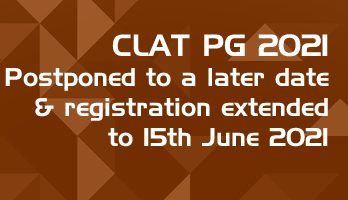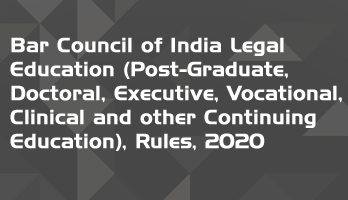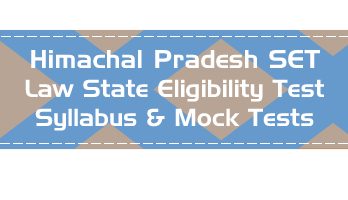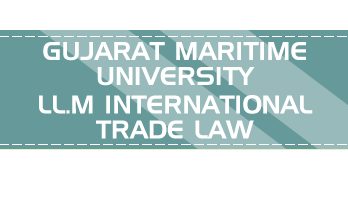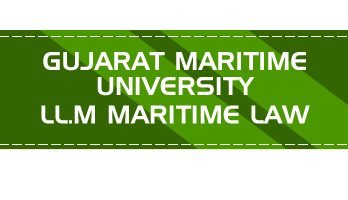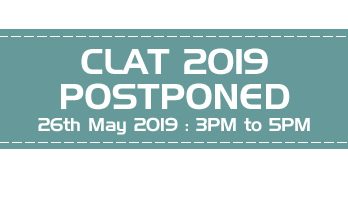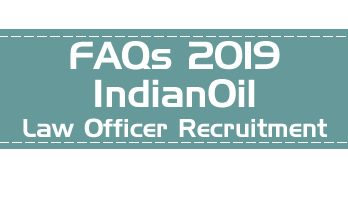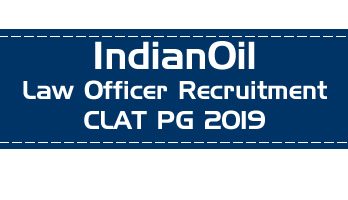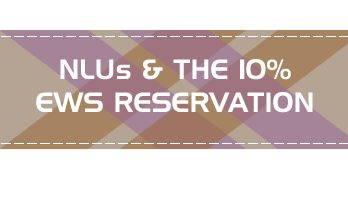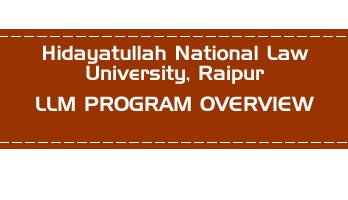Q : What is the “Marks to all” marking scheme in the UGC NET? Will it be given to all students, only those who ticked any of the options, or who ticked all options of the questions?
Ans :
AFAIK . .
If you look at the answer keys for the UGC NET Exam, there will be a footer which goes like this :
9=ALL, A=12, B=13, C=14, D=123, E=124, F=134, G=1234, H=23, I=24, J=234, K=34
So, if the answer for a question is given as ‘G’, it will mean that you will get one mark irrespective of whatever choice you have made in the answer book – 1234. (** But one choice only)
‘E=124’ will mean what you will get one mark if you choose 1, 2 or 4, but not if you have chosen 3.
On the same lines, since ‘G’ already exists to cover the ‘any choice’ category, ‘9=ALL’ would mean that either all the answer choices are wrong OR the question itself is wrong / ambiguous, so all students will get marks irrespective of whether they have attempted / skipped the question.
In some other exams, this is referred to as ‘Grace Marks’ or the specific question itself is completely dropped out from consideration – which again leads to the same outcome as ‘9-All’.
** What happens if you chose multiple options, because multiple options are correct ?
The instructions on the question paper indicate that you have to choose one answer.
Typically, the OMR systems are configured such that if a candidate chooses two or more options for a question, such questions are either ignored or marked as incorrect. (Even if one of the choices is correct)
Even if a question ultimately ends up as having multiple answer options, you may not get any marks since the system has already taken that question out of your list.
So, I would strongly recommend choosing only one answer. Even if a question seems to have multiple correct answer; try and choose the ‘best’ correct answer. Do not take the risk of marking two or more options.
I vaguely recollect hearing about a particular case when OMR was newly introduced for a CET exam. The system had been configured to give 1 mark for every correct answer and ignore all wrong answers (There was no negative marking).
One brilliant candidate laboriously marked all the answer choices for all the questions.
Since the system was not configured to ignore answers with multiple choices, the candidate ended up score 100% !
It is normally impossible to score 100%, so the authorities did a re-check (also because this was the first time they used OMR) and figured out the loophole.
The system was quickly reconfigured, all the papers were re-evaluated and the results released.
Thanks for the A2A.
Q : What is monthly fees of NLUS for general?
Ans :
Depends on the NLU . . .
The fees will have an annual components + one time components + discretionary components + refundable components.
- The annual components will be like Tuition Fee, Academic Support Service Fee, Library Fee, Internet Fee, Electricity Charges, Sports and Games Facilities Fee, Journals Fee, Room Rent etc.This again will change a little depending on the year (I, II, III . . .) and the cost factors + overheads at each NLU.e.g. NLSIU Blr @ INR 185000 PA, NLU Del @ 142000 PA.
- Then there the one time components like Admission fee, ID card fee, Hostel Application fees etc.e.g. NLSIU Blr Admission fee @ INR 6000, NLU Del admission fee @ 1000 PA.
- Discretionary components like re-exam, re-valuation, re-registration, improvement exams etc. which can be between a few hundreds up to a couple of thousands.e.g. Re-regn fee is INR 1500 Per subject for NLSIU and 5000 per course in NLU.
- The refundable deposits like Mess, Hostel, Library, Electricity etc.e.g. NLSUI – INR 13500 as deposits, NLU – INR 32000 as deposits / advance. (Mess advance is INR 21000 in NLU)
Practically speaking . . .
Depending on the NLU and how you manage your budget and discretionary spending, studying at an NLU will work out to around 22K ~ 25K INR PM.
You can also check out the specific fee structure on each NLU’s website.
Thanks for the A2A.
Q : How can I issue a certificate for my computer coaching institute in India?
Ans :
I assume you are referring to issuing certificates to students who complete a course in your Institute ?
There are generally no restrictions on issuing certificates if you are running a Computer Training Institute.
After the students complete the course and complete some form of assessment, you can give them a certificate.
However, you will have to factor in a few things :
- Ensure that you have properly licensed versions (training / education / Commercial editions) of the software you are providing the training on.For example, providing SAP training and issuing certificates for SAP, while running an unlicensed or a non-educational version of SAP may land you into trouble.
- Check on the license / prior permissions required to use the trade marks and brand names on your certificate.For example, you may need to buy a training edition of Tally and also get an approval from the company to provide certificates which mention ‘Tally’ on them.
- Ensure you are not misrepresenting anything with regards to the recognition of the Certificates.For example, include the details somewhere on the certificates that they are not recognized by the UGC / AICTE / AIU etc. So that there is no confusion regarding the validity.You will also have to include the standard disclaimers that you are not associated with SAP / Tally etc. and they don’t have any liability regarding the course / certificate etc.
I would suggest that you should consult a practicing advocate with all the details so that all angles are covered, all the legalese is taken care of and you can go about your business in a hassle-free manner.
Thanks for the A2A.
Q : Can we do an LLM and a diploma in labour law simultaneously?
Ans :
Depends . . .
There are a couple of aspects to consider :
(1) Will the rules allow it ?
Depending on where you are pursuing your LLM, the Institution may have some ground rules about taking up other courses in parallel.
For example, if you take up LLM in Delhi University, you have to sign an undertaking that you will not pursue any other course / profession / practice during your LLM.
Many other Universities may not have any such formal restrictions. So, find out the rules that apply in your case.
(AFAIK, Dip. in Labor Law should not have any such restrictions, but no harm in checking that too.)
(2) Will you be able to manage the academics . . .
Assuming that one is full-time and one is part-time, you have to factor in the academic requirements, exam schedules etc.
If both are full-time, how will you shuffle your attendance requirements.
But since Dip. in Labor Law is usually a part-time / distance course you should be able to manage.
Bottom-line : Unless there is a formal restriction by either of the Institutes, you can surely take up and complete both the cases in parallel with a little extra bit of effort.
Thanks for the A2A.
Q : How do I get a law degree and license in India?
Ans :
This is adapted from one of my other answers . . .
In simple steps, if you wish to practice as a Advocate / Lawyer in India :
(1) Complete LLB (3 years or 5 years)
(2) Enroll with state Bar council
(3) Start practice as an Advocate
(4) Clear the All India Bar Exam – AIBE within two years of enrollment
(5) If unable to clear – stop practice as a Advocate – continue to attempt AIBE and clear it.
(6) Resume practice as a lawyer.
If you don’t intend to practice and you are involved in any other business or in full time employment, you can skip the AIBE.
Now the details . . .
To complete an LLB, you can :
- directly get an admission into the 3 year course in a Tier 3 college ( if you are a graduate and meet the minimum academic requirements)
- directly get admission into the 5 year integrated LLB in a Tier 3 college (if you have completed your +2 and have the minimum marks)
- go through an entrance exam and get into a Tier II or Tier I Law College (rest of the requirements are same)
To practice as an independent lawyer after completing LLB,
A student has to register with the respective state Bar Council and pass the AIBE within two years.
There is a ‘grace period’ of two years from the date of enrollment with the Bar Council, during which a LLB graduate can practice as a Advocate (i.e. represent clients in a Court of law)
If the student is unable to clear the AIBE, he/she has to stop practicing as a lawyer (at the end of 2 years from State Bar council enrollment date) and can recommence practice only after clearing the AIBE.
This link has the list of State Bar Councils in India :
Q : Is there any age limit to pursue law studies in India?
Ans :
This is adapted from one of my previous answers :
As of today (29th June ), there is no upper age-limit for LLB admissions.
While a upper age limit was briefly in-place, it was struck down by the courts.
However, BCI was supposed to appeal the decision and there is no update on the same.
Currently, the Colleges affiliated to the Karnataka State Law university are getting students to fill up a declaration form stating that candidates to the effect that :
“I hereby undertake that, I shall be bound by the final decision of the Honorable Supreme Court of India, New Delhi in the Writ Petition (Civil) No. 1023/2016.
My admission shall be subject to the final judgment in the above cited case and the decision of the B.C.I.
If my admission gets cancelled as per the final decision of the Court or B.C.I, then I alone will be responsible for the same. I shall not hold the University responsible for the cancellation of my admission.”
The age limit mentioned in the application form is 20 yrs Gen or 22 yrs SC/ST for 5 year LLB and 30 yrs Gen or 35 yrs SC/ST for 3 year LLB.
If the age limit is reintroduced, it will be applicable on all colleges across India.
I am not aware of the background behind this affidavit and whether it is a norm across other universities also.
Since 1000’s of students across India, who have crossed the proposed age limit have taken admission in various colleges; even through prestigious exams like CLAT / AILET / HPNLET etc; If the age limit makes a reappearance, I don’t believe it will be retrospective, so students already pursuing an LLB should be exempted.
However, let’s wait till the case moves forward and a decision is given.
Q : Can we become a judge after doing an LLM in a private college?
Ans :
Yes.
To become a judge, you need to get selected through the Judicial Services exam for the specific state.
You need to have a BCI approved LLB degree as the basic eligibility criteria.
An LLM degree is not mandatory for the Judicial Services exam.
However, I would recommend pursuing an LLM or any other qualification of your choice as a plan ‘B’. See my rationale below.
This part is adapted from my answer to a similar question.
Not Mandatory . . . but why not ? Consider the following points :
Why LLM ?
If you have chosen law as your career, an LLM is always helpful.
Either for enhancing your knowledge, for specializing in a particular area or even just for adding an additional degree after your name to impress prospective clients or employers.
An LLM is a one / two year commitment and is almost a sure-shot thing; as long as you put in the minimum required effort, you will get your degree.
The Judicial Services exam . . .
The Judicial Services is a ‘high demand’ career option in India. Depending on the specific state, the role to applicant ratio can be anywhere in the range of 1 : 1000 or higher.
Not every candidate get through in the first attempt, many of them have multiple attempts.
Considering that the Judicial Services exam is a mix of objective and subjective papers + personal interview – I would suggest a 6 to 8 month prep period.
Syllabus for the Judicial Service exams . . .
The Judicial Services syllabus is predominantly based on the standard LLB syllabus; and will also include some state level laws.
What will you study in LLM ?
Since Law will be your subject in the Judicial Service Exams, your LLM course will not be a totally different direction.
You will be focusing on one or more of the Law subjects in your LLM course, which will only add to and help in your preparation.
How do I balance the time required for LLM and Judicial Services prep ?
Think of the LLM as a subset of your Judicial Services prep.
Personally, I have seen that we often are at our peak efficiency when our schedules are tightly packed.
We tend to get work done faster and more efficiently – if we are running against a deadline, with some pressure.
How to prioritize ?
Consider various factors, such as :
- What is your current age; and considering the age limits for Judicial services, how much of a leeway do you have ?
- Where do you realistically see yourself in terms of your ability to crack the Judicial Services ?
- What are your options and career preferences if you do not clear either or both the exams?
- What is your ability to focus -concentrate and prepare full-time? i.e. If you decide to focus solely on Judicial Services, will you be able to actually study full-time ?
Q : Can I apply for an LLB with correspondence?
Ans :
This is adapted from my answer to a similar question . . .
A quick Google search shows several Institutions in India offering a distance education ‘Bachelors degree in law’, usually a BL / BBL etc. But there are also some which offer an LLB! Like Annamalai University Directorate of Distance education.
But, The Bar Council of India does not recognize distance LLB programs for practicing as an advocate.
Why BCI does not recognize distance LLB for practicing as an Advocate?
LLB is a ‘professional’ degree that allows graduates to practice independently after graduation.
By design, the curricula of all ‘Professional’ degrees have a theoretical aspect + a practical and/or experiential aspect.
The practical and experiential aspect covers the application of the theory in real world situations.
For LLB, there are moot courts, class discussions & debates, viva exams, practical exercises in drafting & pleading, court visits to observe and document proceedings; such practical aspects may not be possible in a distance education model.
Hence, the Bar Council of India mandates that all LLB (BCI recognized) courses in India should be conducted in a full-time mode only.
A distance learning or correspondence program might serve the purpose if your intention is to gain some knowledge in a specific area of Law. It might also be OK for getting some additional qualifications.
But it will not help if your intention is to practice law.
Q : Which is the best coaching institute for the DU LLM entrance test?
Ans :
This answer is adapted from one of my previous answers to a similar question.
While there are plenty of Coaching Institutes offering programs for CLAT UG, there are very few for CLAT PG.
Before you shortlist a coaching center near your location, consider the following.
You may not need coaching for DU LLM entrance exam . . .
Coaching institutes are great; and they are very essential for exams where there is a subjective assessment and you have to deal with a lot of theory, which you may not be familiar with.
Coaching is also great for exams where there are analytical / mathematical / reasoning based questions – since a good coach should teach you how to approach them and solve them in the fastest possible way.
So, coaching may be a good idea for CLAT / DU LLB / AILET etc. But personally, I feel coaching is not required for CLAT-PG / DU LLM / AILET PG etc.
Why ?
LLM entrance exams are based on the LLB syllabus and you are already familiar with the subjects. You don’t need to be explained how the Constitution came into being or what different schools of Jurisprudence are etc.
What you do need is to know the answer to the questions.
First look at the syllabus . . .
“ The LL.M. Entrance Test Paper shall contain 100 Questions relating to: Constitutional Law of India, Law of Contracts, Sale of goods, Family Law, Criminal Law, Intellectual Property Rights, Cyber Law, Jurisprudence, Law of Torts, Consumer Protection Act, Public International Law, Company Law and Partnership.”
The syllabus therefore essentially covers all the important topics from the LLB course.
Also, there is no specific break-up of the marks from each area; so how do we know what should we focus on ?
Well,
- analyse previous years papers,
- analyse important questions from other similar exams,
and you can arrive at a fairly accurate picture of what to expect.
As I have been saying, the best way to prepare for any MCQ – objective questions based exam is to just keep practicing . . . practicing and practicing; till you can identify the correct answer for the question – even if you are not completely sure about why it is the correct answer.
Also, there are many questions which don’t need any ‘explanation’ or understanding, since they are fact based.
For example, if a question asks “Which article of the Indian constitution refers to ‘freedom of speech and expression’?”; you just need to know that it is Article 19. There is no explanation required.
Similarly, if the question is twisted around and asks “Article 19 of the constitution of India refers to which of the following?” ; you need to be able to identify the correct answer; there is no explanation!
A bulk of the questions in the DU LLM exam are in the above pattern… “Who said …… “, “The section ……… of the …….. act says what?” etc.
So, if you solve all the previous question papers + solve important questions from other exams AND keep solving them till you get most of the answers correct, you will do exceptionally well in the DU LLM entrance exams.
Same questions, Similar questions . . .
If you analyse the previous question papers, you will see that a bulk of the questions are repeated, derivations or similar to previous questions. So, practicing as many previous papers as possible is recommended.
Also, practice as many mock tests as possible, which have relevant questions.
For example, though the Constitution of India may have 448 articles, 95% of the questions in most exams refer to only around 50 ~ 60 articles, so the mock tests should have questions around these relevant articles, which makes your preparation more effective.
Q : Is it essential to take the NET exam in the same subject as that of a postgraduate education?
Ans :
This answer is adapted from one of my previous answers to a similar question . . .
Look at it from the recruiter / selector’s point of view . . .
When you are applying for the UGC NET, you can take any subject that you are eligible for.
That’s because both the exam don’t guarantee a job or a JRF. It is just a certification which attests to your proficiency in the chosen subject.
However in the next steps – either when you apply for an Assistant Professor role or for a JRF, the UGC certification is just one criteria for selection.
Your core graduation and post graduation subjects will be the primary selection criteria and the UGC certification will just be used as an additional criteria – and not in lieu of the primary criteria.
For example, I might be able to take up the UGC NET in either of the two areas that I am truly eligible for; but my choice would depend on which of the two areas will I be able to apply for as an Asst Professor. i.e. Where will I best meet all the other criteria.
So, how to choose ?
If you are eligible to take multiple subjects, you can take either or all* (only one at a time); but I would suggest taking the subject in which you intend to pursue your career; and which has the best probability of getting you a job / JRF.
I.e. Do a little research on the demand-supply numbers in the subjects you wish to take and chose the best option.
Q : Can a student apply for the UGC NET exam if he had a supplementary exam?
Ans :
Yes . . .
If you look at the eligibility criteria for the UGC NET exam, it says :
Candidates who have appeared OR will be appearing at the qualifying Master’s degree (final year) examination and whose result is still awaited or candidates whose qualifying examinations have been delayed may also apply for this test.
However, such candidates will be admitted provisionally and shall be considered eligible for award of Junior Research Fellowship/eligibility for Assistant professor only after they have passed their Master’s Degree examination OR equivalent with at least 55% marks(50% marks in case of OBC(Non- creamy layer)/SC/ST/PWD(persons with disability) category candidates.
Such candidates must complete their P.G degree examination within two years from the date of NET result with required percentage of marks, failing which they shall be treated as disqualified.
So, you can take the UGC NET exam even if you are yet to appear for your final exams in your Master’s Program.
There is no issue with clearing your masters in either the main or supplementary exams.
As long as you clear your Master’s within two years from the date of the UGC NET results; and you score the minimum marks required for eligibility, you are on track. (55% for Gen and 50% for OBC/SC/ST/PwD)
Q : What is the best option after PG, banking or preparing for the NET?
Ans :
I would say ‘both’ . . .
Both are different types of exams. i.e. The Banking exam is a ‘selection’ exam. If you score high enough, you will get a job; and you are on a career path.
On the other hand, the NET exam is a ‘qualifying’ exam, where 6% of the candidates who meet the eligibility criteria will be declared as NET qualified in their specific subject. But that doesn’t guarantee a JRF or a Assistant Professor job.
You will apply for the JRF / Asst Professor jobs, with the JRF as one of the qualifying criteria.
The Banking exams are essentially ‘all-or-nothing’ exams – either you get a job immediately or you have to attempt the exam again till you hit the age limit.
The UGC NET qualification is a ‘life-time’ certification, since there is no upper age limit for Assistant Professor qualification; and most colleges are also quite open to hiring faculty with experience. (Industry / Academic).
There is also a certain amount of overlap between Banking exams and the UGC NET Paper I, which is an added advantage in preparing for both the exams.
IMHO . . .
Both the exams will require around 2 ~ 3 months of preparation (or you can stretch the preparation time to 5 ~ 6 months if you are engaged in any other job or business)
In either case, if you manage time efficiently and maintain a disciplined approach, you will do well in both the exams. Preparing for both the exams also cuts-down on the monotony factor.
One will be your Plan A and the other will be your Plan B.
Q : Which subject is the best for a B.Pharm student for clearing the NET?
Ans :
Since you are from a science background, you should look at CSIR NET as the primary option.
The answer below is from one of my answers to a similar question.
Look at it from the recruiter / selector’s point of view . . .
When you are applying for the UGC NET or the CSIR NET exams, you can take any subject that you are eligible for, in either of the exams or even both the exams.
That’s because both these exams don’t guarantee a job or a JRF. They are just certifications which attest to your proficiency in the chosen subject.
However in the next steps – either when you apply for an Assistant Professor role or for a JRF, the UGC or CSIR certification is just one criteria for selection.
Your core graduation and post graduation subjects will be the primary selection criteria and the UGC / CSIR certification will just be used as an additional criteria – and not in lieu of the primary criteria.
For example, I might be able to take up the UGC NET in either of the two or three areas that I am eligible for; but my choice would depend on which of the two areas will I be able to apply for as an Asst Professor. i.e. Where will I best meet all the other criteria.
So, how to choose ?
If you are eligible to take both the exams, you can take both; but I would suggest looking at the previous advertisements / selection criteria for the roles that you intend to pursue – are they asking for CSIR NET or UGC NET; and take the appropriate exam.
Though there may be a certain level of overlap, the CSIR NET covers pure sciences and the UGC NET mostly has the applied sciences subjects. So take a call based on what is your area of interest.
Q : Is a management subject included in the WB SET or not?
Ans :
Nope, But . . .
The WB SET did not have Management as one of the subjects; But that doesn’t mean that Management cannot be on the list.
I believe that if there is a shortage of qualified Assistant Professor candidates for specific subjects, such subjects are added to the exam.
For example, Law was not on the list in 2015, it was added in (There was no WB SET in 2016)
If you are interested in pursuing Asst Professor qualification in Management, you can take up the UGC NET, which will make you eligible for roles all over India, including WB. (Unless you intend to take the subject in Bengali medium, in which case you will have to wait for the subject to be included in one of the next WB SET exams.)
This is the complete list of subjects from WB SET 2017.
- Anthropology
- Bengali
- Chemical Sciences
- Computer Science And Applications
- Earth, Atmospheric, Ocean And Planetary Sciences
- Economics
- Education
- Electronic Science
- English
- General
- Geography
- Hindi
- History
- Home Science
- Law
- Library And Information Science
- Life Sciences
- Mass Communication And Journalism
- Mathematical Sciences
- Music
- Nepali
- Philosophy
- Physical Education
- Physical Sciences
- Political Science
- Psychology
- Sanskrit
- Santhali
- Sociology
- Urdu
Q : What is the eligibility of NET?
Ans :
The UGC NET actually has two aspects :
- qualification for JRF + Assistant Professor
- qualification for Assistant Professor alone.
The basic eligibility criteria for both is – at least 55% marks (without rounding off) in Master’s Degree OR equivalent examination from universities/institutions recognized by the UGC.
In fact, the syllabus, exam pattern etc. everything is same for both except the age limit.
For JRF + Assistant Professor, there is a upper age limit of 30 years*
For Assistant Professor alone, there is no upper age limit.
* Subject to relaxation for specific categories of candidates.
Check out this page for the complete details of the eligibility criteria for .
Q : Why is the CLAT committee not making the allotment lists public this year?
Ans :
Your guess is as good as mine . . .
It might be because the Supreme Court had said that while the seat allotment process would not be stayed, it would be subject to the outcome of the petition(s) in the Court.
The first round rank list was completed even while the grievances were being addressed and the compensatory marks were being awarded.
The final list should ideally be made public in the interest of transparency.
However, the final outcome of the seat allotments, the revised rankings etc. will have to be decided by the Supreme Court, including the decision on whether the final list will be made public.
We had looked at the formula used for the lost-time compensation process and it does lead to some open questions :
Q : What is the method to study an LLB through a correspondence course? Where are the colleges?
Ans :
None.
This is a frequently asked question; and my answer is adapted from my previous answers . . .
A Google search will show several Institutions in India offering a distance education ‘Bachelors degree in law’, usually a BL / BBL etc. There are also some which offer an LLB! Like this . . .
Q : How do I remember law rules faster?
Ans :
This is my personal experience . . . .
What I always do is to jot down ‘the flow’ of a particular sequence of sections that I need to remember and try to understand the rationale.
For example, in IPC : “Theft < Extortion < Robbery < Dacoity” are a sequence.
[1] Theft is the simplest crime of the four – usually done without the prior knowledge of the victim.
[2] Extortion is theft, done with the knowledge of the victim – by inducing a fear of injury and forcing the victim to deliver something of value.
[3] Robbery is theft or extortion and includes voluntarily causing or attempting to cause death, injury, hurt or wrongful restraint.
[4] Dacoity is robbery committed by five or more persons jointly.
Now, you will remember what the terms mean and what is the difference.
The next step is to write down the relevant section numbers against each of them and memorize.
Are section numbers important ?
Depends on what is the type of exam and what is your objective.
If it is a subjective / essay type exam, like the LLB term exams and your objective is to clear the papers with decent marks – understand the subject and write the answer as relevantly as possible, but you can omit the section numbers.
If you skip the specific section numbers you will score a little less; but you will pass; with 50+ percent.
If your objective is to score in the top 20 percentile in class – then memorize the section numbers.
If it is a competitive exam, you have to memorize the essential section numbers – i.e. the relevant and important section numbers.
If it is a multiple choice competitive exam, just keep practicing as many MCQs as you can; and eventually you will remember the section numbers; because you always have the four answer choices to prompt you.
To summarize :
[1] Build a story or sequence – if you understand it, you will remember it.
[2] Decide on whether you really want to and need to remember the section numbers.
[3] If it is a competitive exam, section numbers are a must; so practice as many MCQs as possible and you will automatically remember.
Thanks for the A2A.
Q : Does the Bar Council of India recognises degrees from IGNOU?
Ans :
This question can be interpreted in two ways . . .
- Does the Bar Council recognize IGNOU graduation degrees as eligible for admission into BCI recognized LLB courses – The answer is Yes.As long as it is not a ‘One sitting’ type graduation exam and follows the regular graduation pattern i.e. 10+2+3 or 10+2+4 and the degree is recognized by the UGC, it is eligible as the basic graduation degree for LLB admissions.
- Does IGNOU offer any LLB / Law Degrees that are recognized by the Bar Council, for eligibility to practice as an Advocate – The answer is No.
Why ?
The Bar Council of India does not recognize any distance LLB / Law programs for practicing as an advocate.
Why BCI does not recognize distance LLB for practicing as an Advocate?
LLB is a ‘professional’ degree that allows graduates to practice independently after graduation.
By design, the curricula of all ‘Professional’ degrees have a theoretical aspect + a practical and/or experiential aspect.
The practical and experiential aspect covers the application of the theory in real world situations.
For LLB, there are moot courts, class discussions & debates, viva exams, practical exercises in drafting & pleading, court visits to observe and document proceedings; such practical aspects may not be possible in a distance education model.
Hence, the Bar Council of India mandates that all LLB (BCI recognized) courses in India should be conducted in a full-time mode only.
Q : Can we do an LLB in a distance learning program, which is approved by the Bar Council of India?
Ans :
This is a frequently asked question; and my answer is adapted from one of my previous answers . . .
A quick Google search shows several Institutions in India offering a distance education ‘Bachelors degree in law’, usually a BL / BBL etc. But there are also some which offer an LLB! Like this . . .


